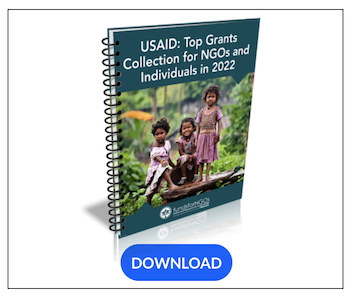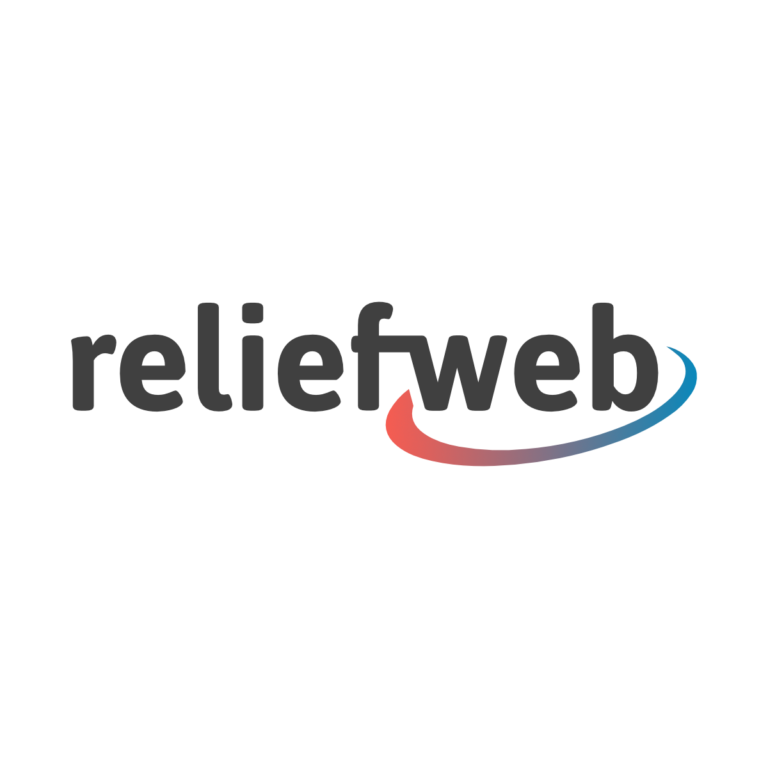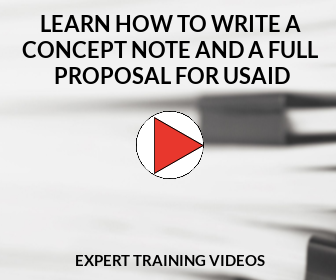, ,
WFP celebrates and embraces diversity. It is committed to the principle of equal employment opportunity for all its employees and encourages qualified candidates to apply irrespective of race, colour, national origin, ethnic or social background, genetic information, gender, gender identity and/or expression, sexual orientation, religion or belief, HIV status or disability.
JOB TITLE:
Risk and Compliance Officer – P3
TYPE OF CONTRACT:
Limited Fixed Term
UNIT/DIVISION:
Programme
DUTY STATION (City, Country):
Yaoundé, Cameroon
DURATION:
2 Years (24 Months)
COUNTRY OFFICE CONTEXT:
Cameroon CO operates in an increasingly complex environment, requiring sound risk management and compliance programmes. To strengthen these practices, the CO is recruiting a Risk and Compliance officer to support in the management and control of risk assessment and compliance issues of the operation. The job holders report to the Country Director or the Deputy Country Director with functional supervision from the Regional Risk and Compliance Advisor where present, or the Chief of the Enterprise Risk Management Unit.
The Job holders operate individually or may be part of a risk & compliance team.
PURPOSE OF THE ASSIGNMENT:
Provide advice and specialized support in the establishment of effective risk assessment and risk management activities; application of controls and compliance with policies and procedures; and contribution to the overall effectiveness of operations and optimization of WFP resources by championing the mainstreaming of WFP’s risk and compliance framework.
KEY ACCOUNTABILITIES (not all-inclusive, within delegated authority):
1. Ensure risk assessment is embedded in planning and decision making through developing and monitoring of key risk appetite metrics and risk indicators, and regular updating of risk registers, including progress towards implementing the risk mitigation actions.
2. Provide advice to RB and CO management and staff in enhancing the existing processes on risk & compliance issues and on maintaining an effective internal control environment to support operational efficiency.
3. Provide assistance in ensuring that the use of all WFP resources is in conformity with approved CO strategic plans/project plans, WFP rules and procedures, and donor funding agreements.
4. Proactively contribute to ideas on enhancement of adequate internal control systems with clear accountabilities, including performance and risk management systems, monitoring and oversight processes and techniques, tools, processes to support their implementation.
5. Contribute to the development of compliance Standard Operating Procedures (SOPs) by 1st Line of Defense colleagues for managing the risk and compliance process, including criteria for conducting risk and compliance missions, training materials and modules, etc.
6. Support relevant managers in their regular and ad hoc risk assessments in regional, country and field offices: to identify and assess risks, assess effectiveness of the internal controls, and evaluate the potential for fraud and corruption in operational activities.
7. Support risk management effectiveness across the office and all aspects of WFP’s operations.
8. Support managers in their fact-finding reviews and fraud risk assessments. Collect and analyse data on fraud incidents, fraud risk metrics, and fraud risk appetite, provide training in AFAC standards.
9. Facilitate accountability across functional units, prepare comprehensive reports summarising the status of compliance of internal controls, key oversight themes, and using risk information (e.g. risk indicators, incidents) to highlight areas out of risk appetite and formulate sound recommendations on required actions in areas of risk & compliance vulnerability.
10. Support managers in the preparation of risk information for management to share with external stakeholders such as UN system-wide engagement, donors, and partners.
11. Assess information/training needs and prepare and deliver training programmes or information sessions for colleagues and partners in RB or CO to enhance understanding of risk management and compliance with WFP policies, rules, regulations and procedures.
12. Support risk management focal points in region/country offices.
13. Demonstrate managerial and functional skills by effectively managing a team and building staff capabilities for high performance results.
14. Other duties, as required.
WFP LEADERSHIP FRAMEWORK: COMMON STANDARDS OF BEHAVIOUR
Leads by Example with Integrity
Upholds WFP values, Respects others Stays focused and Demonstrates
principles, and and values calm under humility and a
standards diversity pressure willingness to learn
Demonstrates and Values diversity Stays focused and Demonstrates humility
encourages others to using respectful calm when under and a willingness to
uphold the WFP and inclusive pressure, learn and share
values, principles and language, and encourages others knowledge, frequently
standards encourages others to do the same, and seeking and acting on
to do the same offers guidance and feedback, and pursuing
support to manage opportunities to
difficult situations develop
Drives Results
and Delivers on
Commitments
Delivers results for Delegates Adapts readily to
maximum impact appropriately change
Identifies and aligns Delegates Responds readily to
objectives to the responsibly and change in different
required outcomes, provides contexts and
holding self and/or appropriate adapts accordingly
others accountable for support
the delivery of results empowering others
for maximum impact to deliver results
Fosters Inclusive
and Collaborative
Is inclusive and Gives timely and Builds and shares
Collaborative constructive new perspectives
feedback
Promotes inclusive Supports Seeks out, trusts
teamwork and development for and listens
psychological safety others by giving attentively to
by encouraging timely and diverse views to
colleagues to constructive capture, learn,
collaborate by sharing feedback build and share
ideas and openly new perspectives
raising issues
Applies Strategic
Thinking
Communicates and Embraces Analyses and Considers the impact
fulfils WFP’s vision curiosity and new evaluates data of decisions
ways of doing
things
Communicates and Demonstrates Gathers data and Implements decisions,
fulfils WFP’s vision and curiosity, designs different considering the risks
operational outcomes and implements perspectives, and implications of
to deliver meaningful new ways of doing shares knowledge actions for teams,
solutions things when and uses evidence projects and other
relevant to inform decision initiatives
making
Builds and Maintains Sustainable Partnerships
Builds partnerships Collaborates to
deliver common
objectives
Initiates and builds Collaborates with
partnerships by partners to deliver
identifying and common objectives
promoting by sharing
opportunities for information and co-
mutual areas of creating innovative
interest and benefit solutions with
beneficiaries when
appropriate
DESIRED EXPERIENCES FOR ENTRY INTO THE ROLE:
- Has experience in procurement and finance procedures and processes
- Has relevant project management experience
- Has conducted monitoring and reporting activities, demonstrating knowledge of results hierarchy, performance metrics and measurement
- Has conducted risk analysis and developed risk mitigation strategies
STANDARD MINIMUM ACADEMIC QUALIFICATIONS:
Education:
Advanced University degree in business/public administration, finance, accounting, international development, audit or other relevant field, or First University degree with additional years of relevant work experience and/or training/courses in audit, performance and risk management, Procurement, Certified Fraud Examiners or other related fields.
Experience:
At least five years of relevant progressively responsible experience in Risk/Finance related functions of which (2 or more years) experience in leading, undertaking and/or contributing to risk management activities, including assessing and recommending effective internal controls and mitigation actions, in various organizations that use modern enterprise risk management frameworks, techniques and systems.”
Language:
Fluency (level C) in English and French language. Intermediate knowledge (level B) of other official UN language: Arabic, Chinese, Russian, Spanish, and/or Portuguese (a WFP working language).
Terms and Conditions
Limited Fixed-Term Appointment (LFT) position is a non-mobile staff appointment in the international professional category for a limited period for up to 4 years and is open to all nationalities (for HQ and RBs) or candidates must be a national of a country other than the country of assignment (for Country Offices). The position is based in Dakar, Senegal and the selected candidate will be expected to relocate. Incumbents of LFT positions are not eligible to apply for other mobile positions advertised internally through the Reassignment.
WFP offers an attractive compensation and benefits package in line with ICSC standards (http://icsc.un.org) including basic salary, post adjustment, relocation entitlement, travel and shipment allowances, 30 days’ annual leave, home leave, an education grant for dependent children, a pension plan, and medical insurance.
WFP seeks candidates of the highest integrity and professionalism who share our humanitarian principles. Selection of staff is made on a competitive basis, and we are committed to promoting an inclusive work environment in which diversity is valued and where no form of discrimination is tolerated. We aim to achieve parity in our teams in Western Africa. Qualified female applicants are especially encouraged to apply.
All employment decisions are made on the basis of organizational needs, job requirements, merit, and individual qualifications. WFP is committed to providing an inclusive work environment free of sexual exploitation and abuse, all forms of discrimination, any kind of harassment, sexual harassment, and abuse of authority. Therefore, all selected candidates will undergo rigorous reference and background checks.
No appointment under any kind of contract will be offered to members of the UN Advisory Committee on Administrative and Budgetary Questions (ACABQ), International Civil Service Commission (ICSC), FAO Finance Committee, WFP External Auditor, WFP Audit Committee, Joint Inspection Unit (JIU) and other similar bodies within the United Nations system with oversight responsibilities over WFP, both during their service and within three years of ceasing that service.
, Apply now , Added 5 days ago – Updated 1 hour ago – Source: wfp.org









